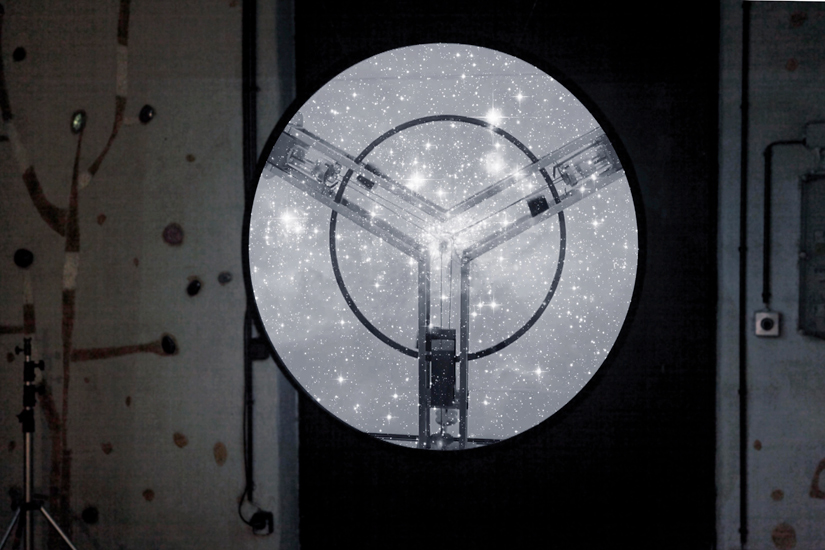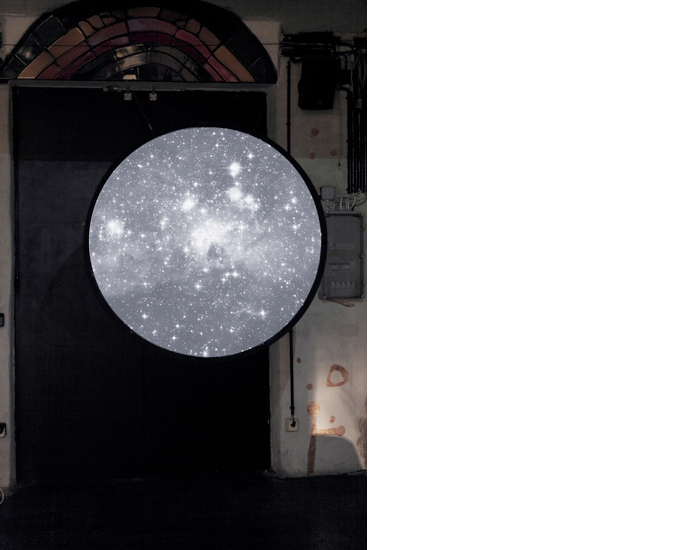The media reflexive work "On the Impossibility of Perpetual Motion" examines a construction of the British scientist David Jones, that apparently functions as perpetuum mobile and can be seen in the Technical Museum in Vienna. The video shows details and primarily the wheel, that allegedly turns perpetually. The continuous movement is transposed on a reflector, which serve as tools in film making. A voice from the off embarks on a philosophical journey.
I started filming repeated movements of a motion machine, thinking of celestial bodies. Planets may appear as perpetual but they are exposed to solar winds, gravitation, electromagnetic radiation, and will eventually cease to exist. "Isn't the sun the perfect Perpetuum mobile?" I ask myself. But what if it too eventually burns out? Still, humanity strives for the eternal, for the construction of duration that guarantees the continuity of time. This simple idea of creating a machine that works indefinitely, without any external source of energy, represents the dream of numerous past inventors. But today we know that a perpetual motion machine violates the laws of conservation of energy. Already Leonardo da Vinci denied the existence of machinery which extracts energy from seemingly perpetual sources because they are powered by the energy stored within the source, which will ultimately wind down. The wish to create an eternal energy source that can be equalled to the elimination of the transient elevates the idea on a transcendental dimension. Thus, the abstract idea, per se, continues to live on. The pictures of the ongoing repeated movement have a profoundly hypnotic effect, as does the continuous stream of notes or repetition in music. They remind me of the sound produced by primitive people in order to attain a state of trance. So, does the eternal remain a physical impossibility that might be lived only in religion or in a single moment?
 On the Impossibility of Perpetual Motion
On the Impossibility of Perpetual Motion2015
HD Video on reflector, b/w, sound, English, 1'57''
Exhibition view Perpetuum Mobile, 17.11. - 10.01.2016
Garage - KUNST HAUS WIEN / Museum Hundertwasser, Vienna.
Curated by Marcello Farabegoli
Foto: Sissa Micheli
 On the Impossibility of Perpetual Motion
On the Impossibility of Perpetual Motion2015
HD Video on reflector, b/w, sound, English, 1'57''
Exhibition view Perpetuum Mobile, 17.11. - 10.01.2016
Garage - KUNST HAUS WIEN / Museum Hundertwasser, Vienna.
Curated by Marcello Farabegoli
Foto: Sissa Micheli